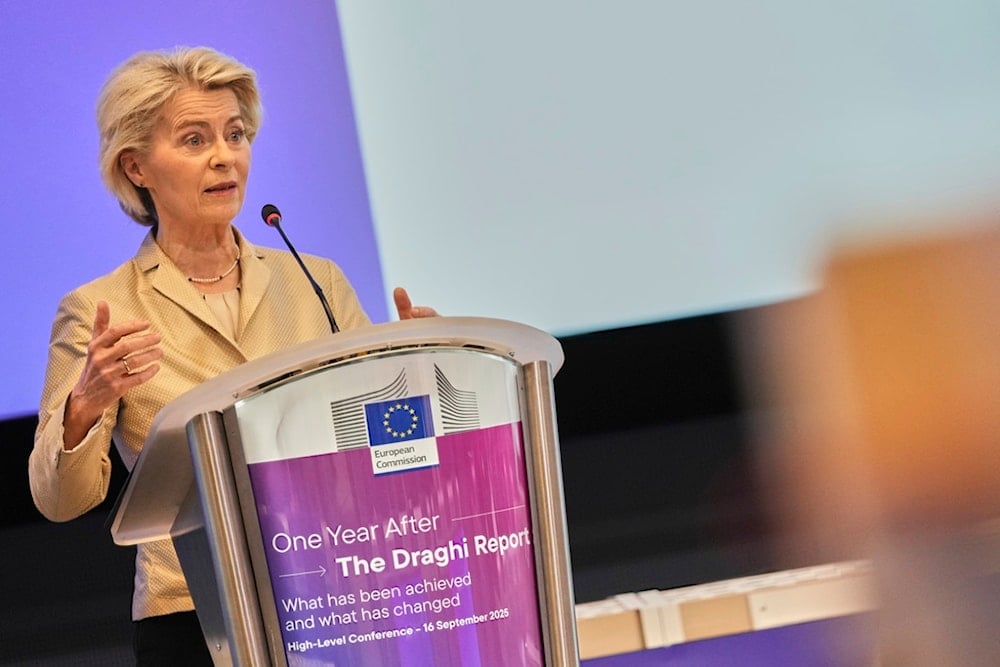EU to resist US push for tariffs on India, China over Russian oil
The EU has rejected US demands to impose sweeping tariffs on India and China for buying Russian oil, opting instead for targeted sanctions while pursuing deeper trade and security ties with New Delhi.
-

Commission President Ursula von der Leyen addresses the audience during the conference "One Year After the Draghi Report" at the EU Charlemagne building in Brussels, Tuesday, Sept. 16, 2025 (AP)
The European Union has ruled out imposing sweeping tariffs on India and China, despite repeated pressure from Washington to punish both countries for continuing to buy Russian oil.
European Commission President Ursula von der Leyen said in an interview published Sunday that Brussels would not adopt measures that undermine its own interests. US President Donald Trump had urged European leaders to introduce 100% duties on India and China, part of his broader campaign to choke off Russia's energy revenues.
"The EU will make its own decisions. This request is related to the president's desire to increase pressure on Russia.… We know that in this increasingly complex geopolitical environment, we must strengthen our partnership based on common interests," von der Leyen told Le Soir.
She stressed India's growing role in Indo-Pacific security, arguing that "closer cooperation between the EU and India is more important than ever." Brussels is pushing to deepen defense and security ties with New Delhi while simultaneously advancing negotiations on a free trade agreement.
"We intend to conclude a new free trade agreement by the end of 2025, which will benefit businesses on both sides. Ultimately, this agreement and other similar agreements strengthen our geopolitical positions, allowing us to achieve our goals," she said.
Targeted Sanctions Prevail
The EU's decision comes as it accelerates efforts to phase out Russian fossil fuels through its latest sanctions package, which targets energy, banking, and emerging sectors such as crypto. Officials in Brussels say that targeted restrictions are more effective and less disruptive than blanket tariffs on third countries.
Trump, however, has continued to push for a harder line. Before departing for the United Kingdom last week, he urged Europe to halt purchases of Russian crude entirely, and on Saturday he called on US officials to increase pressure on NATO allies to comply.
At the same time, Washington has linked its own tariff strategy to Europe's actions. US Treasury Secretary Scott Bessent has stated that the United States will only impose additional duties on China if the EU moves first, a condition that Brussels has so far resisted.
Earlier today, Bloomberg reported that a bipartisan US House delegation led by Rep. Adam Smith arrived in Beijing, marking the first such visit in six years amid trade talks, TikTok negotiations, and efforts to stabilize US-China relations.
Read more: China-US relations: Xi and Trump hold positive, constructive call

 3 Min Read
3 Min Read








